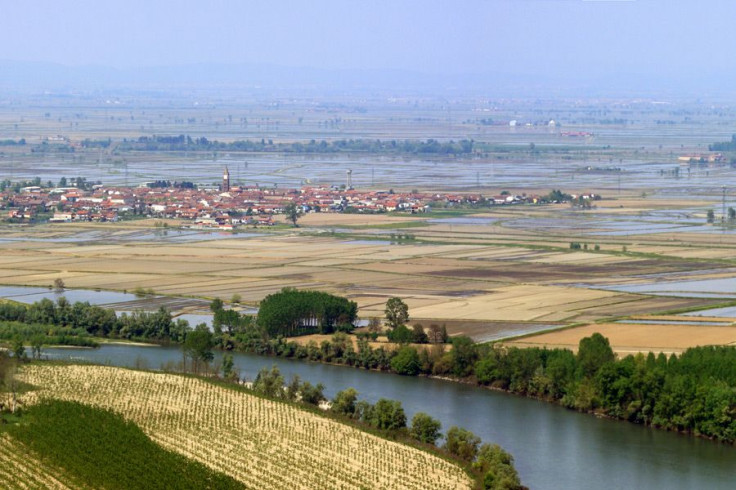Northern Italy Town Welcomes First Baby Boy Born Since 1987; Why Population Growth Matters

The population of Ostana, Italy is now 85, thanks to baby Pablo.
The small town located in the mountains of Italy's Piedmont region hasn’t reported a new baby since the 80s, BBC reported — the population has "plummeted" over the past 100 years. Mayor Giacomo Lombardo traces the decline back to World War Two, but believes "the real decline started in 1975." The last baby born was reported in 1987.
So when Pablo’s parents, Silvia and Josè, took him to the local registry office last week, the town declared it a celebration. The town planned to throw a party and place a model stork holding a blue bundle in its beak at its entrance, according to La Stampa. Pablo joins his siblings Clara, 6, and Alice, 4.
"The arrival of Pablo is a dream come true after all this time," Lombardo said.
It’s a dream that almost didn’t happen. Silvia told La Stampa that when she was pregnant for the second time, she and her husband planned to live on the tropical French Island Reunion. But when a friend told her about "the retreat of Ostana," she and her husband submitted a project for a small alpine refuge, CNN reported. The city selected the project and the couple moved there instead.
"We love the quality of the life here," Josè told CNN. "Ostana is a safe place for our daughters, and we feel part of this community."
Silvia echoed this sentiment in her interview with La Stampa: "We moved to Po Valley and today we are happy to that choice. Although sooner or later we're going on the road in the tropical island."
Sotto il Monviso arriva il bambino atteso 28 anni https://t.co/wsq2nhpmJy pic.twitter.com/1qysJNXpl0
— La Stampa (@la_stampa) January 28, 2016#montagnachevince #ostana #vallepo #monviso nasce un bambino dopo 28anni. Rinasce il #borgo TerreAlte rivivono! pic.twitter.com/G8bAucm6R1
— Uncem Piemonte (@UncemPiemonte) January 26, 2016This is par for the course in Ostana; Lombardo said only half of the town's inhabitants live in it year round. But to him, baby Pablo is proof the town's attempts to reverse the population decline are working. He's been working to improve the economy and attract young people so Ostana is less of "a ghost-town," he told The Local.
Recently, the town built a "multi-purpose space," where a film school runs each year and attracts tens of young people from across Italy. The town now also has two restaurants, a shop, and a bar, which was made possible by the town's restorative efforts in several villages.
"The problem is that there is really an absence of politics to help small mountain communities – we are a long way from Rome," Lombardo said. "But we are hanging on in there and planning a party on Sunday to celebrate our latest arrival."
How Bad Is Depopulation?
On a much larger scale, Japan is in similar crisis. DW Asia reported the live birth rate fell to a record low in 2014, with data showing just over a million new births. Anthropologist Fabio Gygi, of the University of London, told DW the decline is both economic and social.
He said Japan's "'traditional' family model still stipulates that the husband is the main wage earner," which has become less attractive to young women. And with this model, marriage remains "the only socially acceptable way to have children." Since men and women now wait longer to get married, fertility remains low, too.
Outside of Japan, Gygi noted fertility rate is lower in Eastern European countries, like Slovakia and Poland, as well as South Korea and Taiwan. But is this really such a bad thing?
It depends who you ask, according to The Atlantic. Some experts believe the less people there are to work, the more likely salaries will go up. Fewer people could also prevent government from overspending and adding to what's already crippling federal debt. And one American study suggested a decline in population growth could lead to an increase in the overall standard of living.
Then there are those who believe fewer workers negatively impacts tax dollars needed to support those reaching retirement. Instead, fewer workers could put greater financial burden on the working population.
Back in 2006, CBS agreed with the latter: population decline is bad. The worry is "theoretical," CBS said, but it's possible "innovation will suffer as the demand for nearly everything (save health care) slackens [...] and instead of producing windfalls of excess supply, economies will probably contract."
For now, Pablo's parents have faith in Ostana.
"We broke the ice," Josè said, "and I hope other people will come here."



























